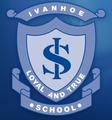IPS Tips

F - Year 2 (approximately)- HELPING YOUR CHILD TO READ
Reading together
Reading together is a valuable thing to do. Reading increases your child’s vocabulary, expands your child’sunderstanding of the world, and gives them confidence when using language. Reading is also an important way to make the link between spoken words and written words.
Here are some general tips:
- Visit your local library to select and read books together, and to attend story time sessions. Library story time sessions are a great way to share the joy of reading with your child in a group setting.
- Encourage your child to select books, magazines, catalogues, or multimedia stories according to their interests.
- Set aside time for reading every day. Reading before bedtime is a good habit to get into.
- Position yourself so your child can see the words and the pictures.
- Run your finger across the page with each word to help your child identify and remember words and sounds.
- Share wordless picture books to develop imagination, ideas and vocabulary by naming and describing things in pictures.
- Look for rhyme, rhythm or repetition in books. This will help develop your child’s love of language.
- When reading to your child, read stories with expression, or try putting on the voices of characters. This will help make reading fun.
- Point out important features about a book – for example, the words and pictures, the front cover, the spine, the contents page, or the title.
- Explore words using a dictionary.
- Encourage your child to take over some or all of the reading if they feel confident.
- If your child is confident with their reading, allow them to read without interruption. Fluency is gained with confidence. Mistakes can be discussed after a block of reading, or in subsequent readings.
- Allow your child to read at their own pace. Model good pace when you read to them.
- Give your child the opportunity to re-read books.
- Encourage your child to join the Victorian Premiers’ Reading Challenge, which runs each year from March to September. Participating early childhood services and schools will register your child – otherwise you can register your child at: Victorian Premiers’ Reading Challenge
- Join the 1000 Books Before School program at your local library: State Library Victoria 1000 Books
Helping your child work out difficult words
When your child begins to read to you, they will often have difficulty with long or tricky words. It is important to give your child time to work out difficult words themselves. This helps develop their reading skills. You might, however, help them if they are stuck by asking questions like these:
- Look at the picture. What word makes sense?
- Look at the picture. What object can you see in the picture that might start with that letter?
- What letter (or letters) does the word start with? What sound does that letter (or letters) make?
- What letters are in the middle of the word? What sound do these letters make?
- What letter (or letters) does the word end with? What sound does that letter (or letters) make?
- Can you put those sounds together to make a word?
Another good strategy is to ask your child how they worked out the word. This helps reinforce reading strategies they learn from you and from school.
Book chat
Discussing the content and meaning of books is an important part of reading. Chat about the book before, during and after reading, and encourage your child to share their ideas and to ask questions about the book.
Here are some questions you can ask before, during and after reading the book:
- Look at the cover. What do you think this book might be about?
- How would you describe the character at the beginning of the story?
- How does the place the book is set in make you feel?
- What is happening in the pictures?
- What do you think is going to happen next?
- Why might a character have done this? What would you do in the same situation?
- Who was your favourite character in the story? Why did you like that character?
- What was your favourite part of the book?
- Can you retell the story in your own words?
Making the most of screen time
You can use the same questions you might ask your child during Book Chat (see above) to discuss TV programs (such as cartoons) or films that you watch together. Understanding visual media is a key element of your child’s literacy.
There are also a number of great games on the internet to help engage your child in reading.
These games include:
- Phonics games that improve reading and letter sound awareness. Phonics involves sounding out individual sounds in a word, and then putting these sounds together to make the word.
- Grammar, punctuation and spelling games.
- Vocabulary games.
Here is a short list of good websites to help begin your online search for games and other resources:
- Home Page - FUSE - Department of Education & Training (select Early Childhood or Primary Students tabs)
- ABC Education
- ACMI Story Monster
- Play School Story Time ABC TV
Taking Small Bytes (Taking Small BYTES Card Deck - FUSE - Department of Education & Training) is also an excellent resource. It contains 100 digital technology activities for you to do and discuss with your child. It also contains tips about using digital technologies wisely and safely.
Reading the world together
The world is full of letters and words you and your child can read together.
Activities could include the following:
- It is important to show your child the value of reading for everyday purposes. Include your child when you read recipes, greeting cards, calendars, shopping lists, food labels, instructions, maps, newspapers, emails, signs, weather forecasts and websites. For example, you could read a recipe together and follow the steps to make your child’s favourite meal. Or you could ask your child to read and tick off each grocery item on a shopping list as you buy or unpack them.
- Cook alphabet soup and say letters together as you eat them.
- Play a word hunt. Write random words on bits of paper and place them around a room. Say one of the words and ask your child to find the right word.
- Put post-it notes on objects around the house so your child can read and learn new words every day.
Year 3 - 6 (approximately)- HELPING YOUR CHILD TO READ
Here are some tips to encourage reading:
- It is recommended that you continue to read together in the later primary years, even if your child is reading independently.
- Take your child to the local library often so they can choose, borrow and renew books. Taking your child to the library at the beginning of school holidays encourages weeks of independent reading.
- Encourage your child to borrow from their school library as well.
- If your child likes an author, find another book or a series of books by the same author.
- Encourage your child to read about their favourite author or illustrator at their website.
- Introduce your child to read different genres such as fantasy, science-fiction, action and adventure.
- Introduce your child to reading different types of texts, such as poems, music lyrics, and short plays.
- Encourage your child to read non-fiction. The newspaper or an online encyclopedia might be a good start, but your child might also be interested in history books or autobiographies of their favourite sportsperson or celebrity.
- Encourage your child to use a dictionary to look up words they might not understand.
- Allow your child to play age-appropriate video games that require reading.
- Encourage your child to join the Victorian Premiers’ Reading Challenge, which runs each year from March to September. Participating schools will register your child – otherwise you can register your child at: Victorian Premiers’ Reading Challenge
- See also “Creating a literacy-rich home” later in this section.
Book Chat
Book chat is an important strategy to help your child to reflect more deeply on the content and meaning of their favourite books. In the previous section, Birth to Year 2, Literacy, book chat questions related mainly to recalling information on plot and character (see p. 15). These questions are still very important to ask when your child is in primary school. As your child moves through primary school, add more questions when discussing the book you are reading together, or when discussing the book your child is reading independently.
Some further questions might include:
- Does the main character change in the story? How does the character change?
- If you could change the ending of this book, what would it be?
- What do you think is the story’s main message?
- What is your opinion about the story’s main message?
- Can you relate the story or message to another event or issue?
- How could other people see it differently?
